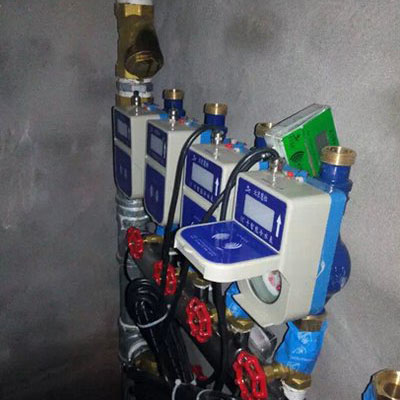What Is The Prospect Of Using Smart Water Meters In Urban Areas
What is the prospect of using smart water meters in urban areas

It is understood that compared to traditional water meters, the birth and application time of smart water meters is relatively short, so the current situation of water meter use in various towns is the coexistence of traditional water meters and smart water meters.
However, with the development of technology and social progress, intelligent communities that integrate property management, security, communication and other systems and are uniformly managed by the property management office have provided residents with a safe, comfortable, and convenient modern living environment. This is the trend and the immediate need of people in the new era. Residential water management is a part of property management, and the implementation of intelligent communities has made it inevitable for smart water meters to replace traditional water meters and enter households.
Therefore, a large number of newly built residential buildings and communities have begun to use smart water meters to achieve intelligent management of communities, and the occupancy rate of smart water meters is constantly increasing.
With the improvement of technology, the cost and difficulty of retrofitting old users will also decrease, providing market conditions for smart water meters to replace traditional water meters. This article provides a brief analysis of the installation and usage prospects of urban smart water meters.
At present, there are four types of commonly used smart water meters: prepaid smart card water meters, branch line intelligent remote transmission water meters, bus based intelligent remote transmission water meters, and wireless intelligent remote transmission water meters.
1. The long-term water usage habit of urban residents is to use water first and then pay. Prepaid smart card water meters that charge first and then use water are difficult for urban residents to accept, so these types of water meters are more marketable in rural areas or areas with difficulty in collecting water bills.
2. Due to technical defects, the initial installation difficulty and workload of the split line intelligent remote transmission water meter are relatively high, and maintenance is also not easy in the later stage. This type of water meter is still far from meeting the requirements of intelligent community, which determines that it is difficult to make a difference in the market.
3. Bus based intelligent remote water meter. The newly built residential buildings are equipped with water meter wells and weak current wells. In terms of installation, the signal line of the bus based intelligent remote water meter can be installed in the water meter well, from the bottom layer to the top layer, and the weak current well is convenient for providing power for the bus based intelligent remote water meter.
The wiring and installation of the bus based intelligent remote water meter can be installed together with the weak current, network cables, optical fibers, etc. of residential buildings, so there are no installation problems. The bus based intelligent remote transmission water meter reading equipment concentrator is also completely installed in the water meter well, without the need to find another place or occupy other space.
The bus based intelligent remote transmission water meter can automatically read the meter through software and concentrator, and transmit the reading data in real time to the server. The meter reading personnel only need to log in to the computer to complete the meter reading work, saving manpower. Moreover, real-time monitoring of water meter operation can improve the quality of water supply management.
The bus based intelligent remote transmission water meter is relatively mature in technology, and the product has good stability and reliability. It has multiple advantages from installation and use to technology, which will make it the mainstream intelligent water meter for new residential buildings and communities.
4. Wireless intelligent remote transmission water meter does not require wiring through pipes, and installation is relatively simple. When renovating old households, only ordinary water meters need to be replaced with wireless water meters.
Urban residents mainly live in large residential buildings, which are relatively concentrated, but the shops and some bungalows in urban areas are relatively scattered. Wireless intelligent remote transmission water meters are very suitable for these places. Therefore, as this technology becomes increasingly mature, manufacturing costs can be reduced, and the market prospects are very broad.
In short, with the continuous development of science and technology, intelligent water meters will gradually replace traditional water meters. The bus based intelligent remote transmission water meter is more suitable for the current urban market environment, while wireless intelligent remote transmission water meters may become the development direction of remote intelligent water meters because they are not limited by wiring space.